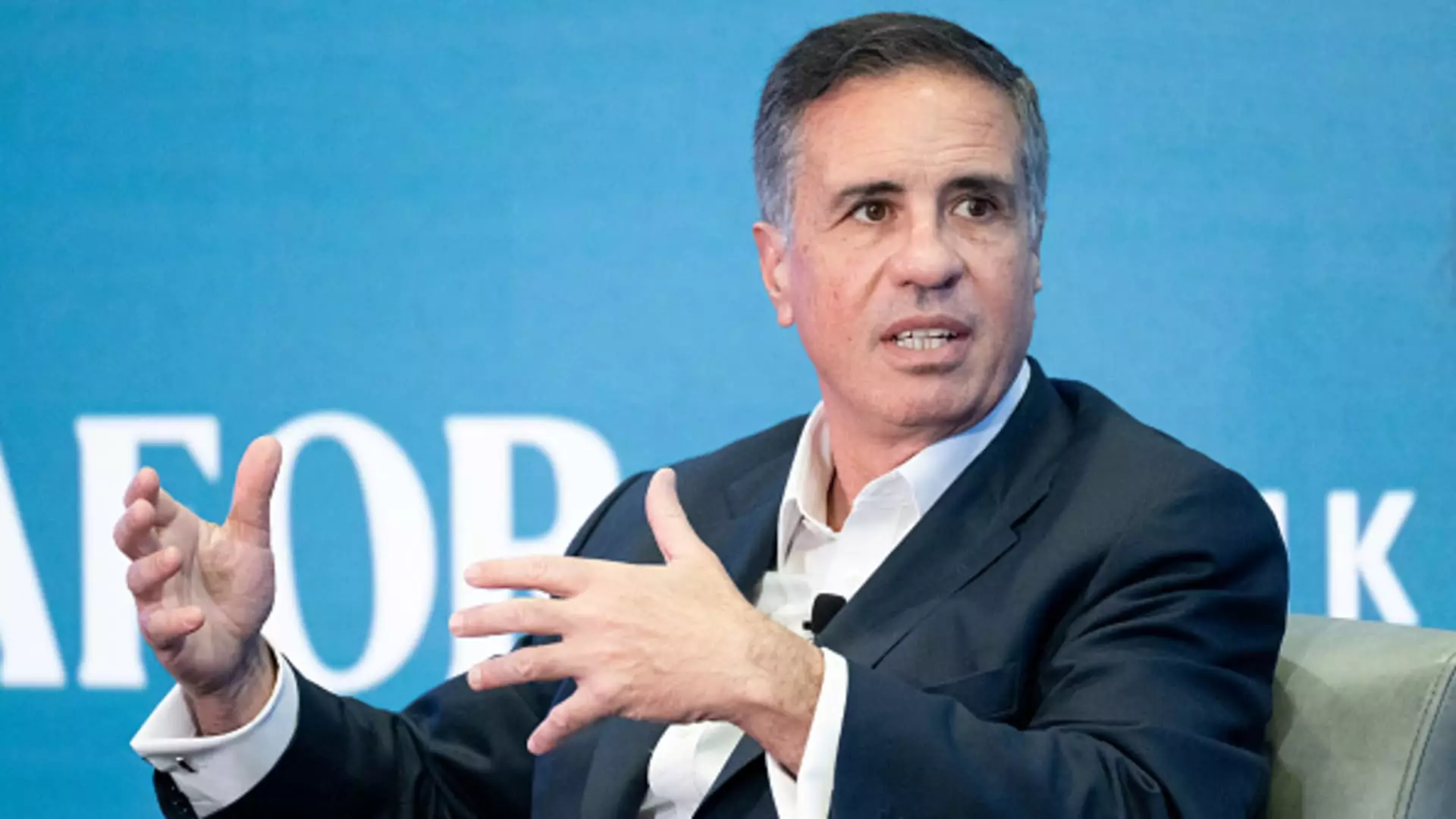JPMorgan Chase, the largest U.S. bank by assets, experienced a significant drop of 5% in its shares following concerns raised by the bank’s president, Daniel Pinto, about the projections for net interest income (NII) in 2025. Pinto expressed skepticism about the feasibility of the estimated NII target of $90 billion for the upcoming year, citing potential interest rate cuts by the Federal Reserve as a crucial factor impacting the bank’s earnings. The uncertainty around NII poses a challenge for investors who have been anticipating steady growth in this area, given JPMorgan’s robust performance in recent years.
The dynamics of NII, which plays a crucial role in determining a bank’s profitability, are heavily influenced by interest rate fluctuations. As interest rates decline, the returns on new loans and investments made by banks are expected to decrease, putting pressure on their overall profitability. While lower interest rates may incentivize customers to retain their funds in deposit accounts rather than seeking higher yields elsewhere, they also pose challenges for banks in terms of generating higher returns on assets. Pinto acknowledged that JPMorgan’s asset sensitivity makes it vulnerable to the effects of declining interest rates, raising concerns about the bank’s ability to maintain its NII targets amid changing market conditions.
In addition to NII concerns, JPMorgan’s expense projections for the upcoming year have also come under scrutiny. The analyst estimate of approximately $94 billion for expenses in 2025 is considered overly optimistic by Pinto, who pointed to factors such as inflation and new investments as potential contributors to higher-than-expected costs. The bank’s ongoing commitment to expanding its operations and investing in new ventures has raised questions about its ability to manage expenses effectively while pursuing growth opportunities in a challenging economic environment. Pinto’s cautious stance on expense projections underscores the importance of cost management for JPMorgan as it navigates evolving market dynamics.
Despite the uncertainties surrounding NII and expenses, JPMorgan remains optimistic about its trading and investment banking activities. The bank anticipates third-quarter revenue from trading to remain stable or increase by up to 2% compared to the previous year, reflecting a relatively resilient performance in a volatile market environment. Moreover, JPMorgan expects a significant uptick of 15% in investment banking fees, signaling strong demand for capital markets services amid evolving market conditions. While trading revenue may face some challenges, as indicated by a projected 10% decline by Goldman Sachs, JPMorgan’s diversified business model positions it to capitalize on opportunities in different segments of the financial markets.

